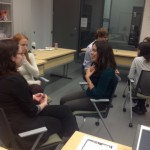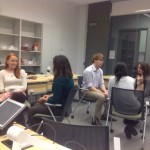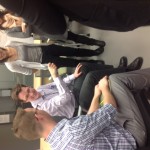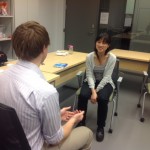Professional Growth: Academic Writing
I have a strange fascination with academic writing. I love to read about it, learn about it, and think about it. Actually doing the writing is also part of the work (but I wouldn’t quite call that part a “fascination”!).
I have a regular writing practice which involves 30 minutes/day for 5 days week. I normally manage that by waking at 5 am, writing first, and then moving on with my day. I especially enjoy working on a piece of writing with others. Some of my favourite writing-related resources can be found here.
In addition to writing for peer-reviewed publications, I have a blog and publish posts in LinkedIn.
Below is a list of workshops/webinars I have attended to grow as a writer:
- Providing Effective Feedback on Writing Assignments. Offered as part of the CTLT Institute, this 2 hour workshop provided us with techniques for being able to be more efficient and effective when we provide feedback to students on their writing. Facilitators: Jackie Stewart and Meghan Aube. Loads of great follow up resources here.
- 30 Articles in 30 Days. Punchy 4-hour webinar offered by Emphasis on Excellence. This was fun and inspiring and engaged the participants creative writing work. This was a reminder that almost everything we do/think/consider can be written up and be of value to others. (April 22, 2016)
- Blogging for Academics. In this webinar, Mark Leccese offered some advice for bloggers. Key ideas for me: (1) finding your voice is hard; (2) consider blogging for other blogs.Offered by the Text and Academic Authors Association (February 2016)
- An Introduction to Academic Blogging. In this webinar, Dr. Lee Skallerup Bessette, spoke about her own path into blogging and some of the lessons learned which may help others as they start to blog. This webinar prompted me to start blogging. Offered by Academic Coaching and Writing (May 2015)
- Go Organic! Growing Your Writing Process From Seed to Harvest. In this webinar, Dr. Cassie Premo Steele used metaphors and images of the four seasons to teach us about moving our work from “the seed of an idea…into a sustainable harvest”. Offered by the Text and Academic Authors Association (January 2015)
- Leverage our Experience: Write More, Publish More, Stress Less. Facilitator: Dr. Dannelle Stevens. Pre-conference workshop offered at POD (November 2014).
- Habits of Highly Effective Writers. October 29, 2012. Facilitated by Dr. Helen Sword from the University of Auckland.
- From Academic Researcher to Commercial Writer (Workshop offered as part of the Graduate Pathways to Success Program. Facilitator Simon Clews. Wednesday, October 19, 2011)



